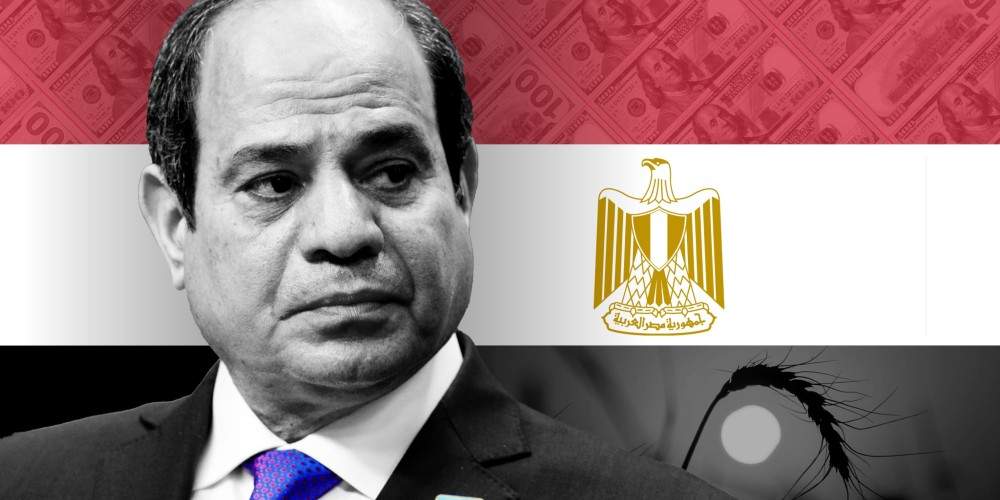The International Monetary Fund (IMF) has approved a more than $3 billion loan allegedly to support Egypt’s ailing economy. But many experts note that the timing of this massive bailout is suspect because of Egypt’s recent moves to join the China- and Russia-aligned BRICS economic union.
In the past year, Egypt has been hit exceptionally hard by soaring oil and commodity prices resulting from global economic turmoil. Foreign portfolio investors have already pulled out around $22 billion from Egyptian debt markets. (Related: Egypt joins BRICS-owned New Development Bank, expresses interest in becoming full-fledged member of BRICS.)
In response to the economic turmoil, Egypt devalued its currency in March and then again by around 18 percent in late October, causing the $400 billion economy to face the worst foreign-exchange crunch in over half a decade.
Egypt has asked the IMF to provide it with more support – on top of a previous $12 billion IMF loan the country is still paying back.
The executive board of the IMF noted that it will send the approximately $3.1 billion bailout in tranches, and the first disbursement of about $347 million will be provided immediately.
As part of the loan agreement, Egypt has acquiesced to several loan conditions. This includes committing to “a permanent shift to a flexible exchange rate regime to increase resilience against external shocks and to rebuild external buffers.”
Important: Our sponsors at Jase are now offering emergency preparedness subscription medications on top of the long-term storage antibiotics they offer. Use promo code “Rucker10” at checkout!
The Central Bank of Egypt has also promised several changes, including more efforts to control inflation and stabilize commodity prices, improve efficiency of the nation’s monetary policy and remove a requirement for importers to acquire letters of credit to buy goods from abroad.
Furthermore, the government of Egypt has introduced structural reforms to reduce government spending, level the playing field across all economic agents, facilitate more private sector-led growth and strengthen governance and transparency in the public sector.
IMF bribing Egypt to stop de-dollarization efforts
Holly Seeliger of “Zoon Politikon” noted that BRICS enticing other developing economies like Egypt to join their economic union is part of a global de-dollarization effort to topple the American dollar’s position as the world reserve currency.
“Egypt stepping up as de-dollarization efforts seem to have sent shockwaves to the West,” said Seeliger. “So, now the IMF has arrived to rescue the petrodollar by bribing Egypt to stop its de-dollarization efforts.”
Michael Mahanta, writing for TFIGlobal News, agreed with Seeliger. He wrote: “It is well known how IMF often secures or advances U.S. interests by using its economic clout. It has done it again, the case of Egypt, in the name of economic assistance.”
Official statements from the IMF and Egypt claim that the $3.1 billion loan will catalyze about $14 billion in additional financing from the country’s international and regional partners. This includes new financing from allies in the Gulf states “through the ongoing divestment of state-owned assets as well as traditional forms of financing from multilateral and bilateral creditors,” claimed the IMF.
Learn more about BRICS and international finance at CurrencyReset.news.
Watch this episode of “Zoon Politikon” as host Holly Seeliger discusses the IMF’s attempt to bribe Egypt into staying in the West’s sphere of influence.
This video is from the Zoon Politikon channel on Brighteon.com.
More related stories:
- BRICS nations moving rapidly to circumvent the US dollar as the World Reserve Currency.
- End of petrodollar edges closer as Saudi Arabia looks set to join new China-dominated ‘BRICS’ economic alliance.
- Economists warn: IMF, World Bank may have little space to maneuver as they lend record amounts to poorest countries.
- BRICS member nations are creating new reserve currency to challenge the dollar, Andy Schectman tells Mike Adams.
- Argentina, Iran apply to join BRICS group of emerging economies.
Sources include:
What Would You Do If Pharmacies Couldn’t Provide You With Crucial Medications or Antibiotics?
The medication supply chain from China and India is more fragile than ever since Covid. The US is not equipped to handle our pharmaceutical needs. We’ve already seen shortages with antibiotics and other medications in recent months and pharmaceutical challenges are becoming more frequent today.
Our partners at Jase Medical offer a simple solution for Americans to be prepared in case things go south. Their “Jase Case” gives Americans emergency antibiotics they can store away while their “Jase Daily” offers a wide array of prescription drugs to treat the ailments most common to Americans.
They do this through a process that embraces medical freedom. Their secure online form allows board-certified physicians to prescribe the needed drugs. They are then delivered directly to the customer from their pharmacy network. The physicians are available to answer treatment related questions.


